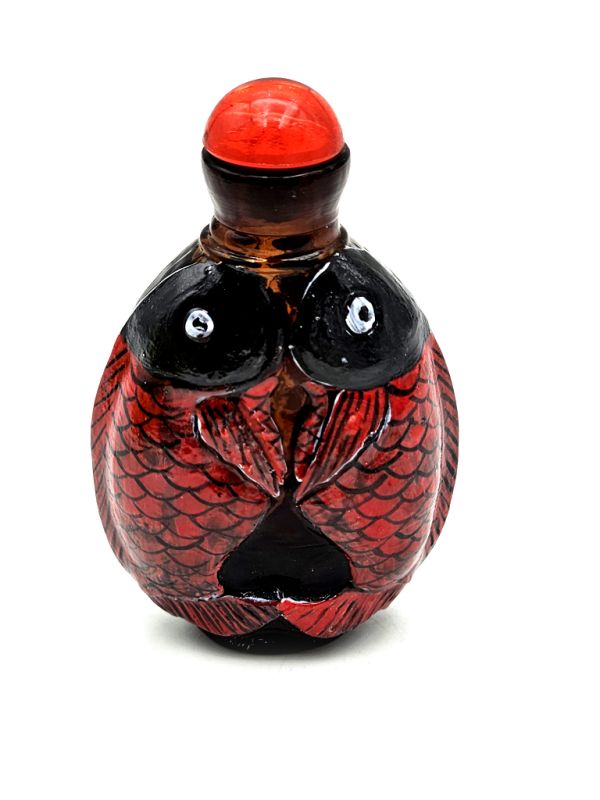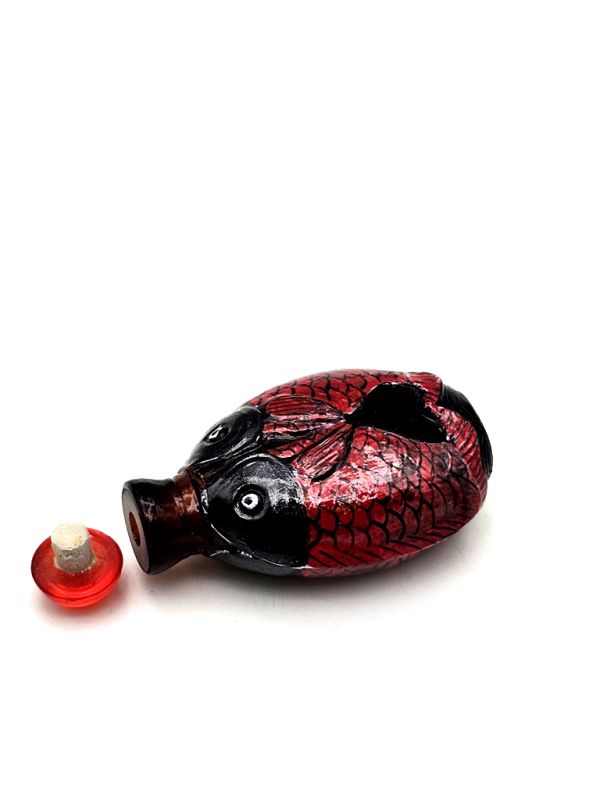Chinese snuff bottle - Blown glass - Double fish
Welcome to the fascinating world of ancient Chinese snuffboxes!
Our site is a real treasure for art and history lovers, offering an exceptional collection of Chinese snuffboxes from various periods. Immerse yourself in China's millennial heritage through these small artistic marvels. Each snuff box tells a unique story, reflecting both the creativity of the craftsmen and the cultural influences of the time. From the Ming dynasty to the Qing dynasty, explore the different periods and styles that marked the history of snuffbox making.
Our antique Chinese snuffboxes are meticulously selected for their authenticity and timeless beauty. They are made of various precious materials such as bone, jade, sandalwood, lacquer, glass and porcelain, showcasing traditional Chinese craftsmanship and techniques. Whether you are a collector, antique lover or simply curious, you will find rare and unique pieces on our site that will amaze you.
Chinese blown glass snuff bottle:
- Here you will find an antique Chinese hand-painted glass snuff bottle. This snuffbox dates from the middle / end of the 20th century (about 30-40 years old)
- The top of this snuff box (stopper) is removed, in order to introduce the tobacco.
- This snuff box has never been used and is in excellent condition.
- Chinese snuffboxes are not like European snuffboxes. These are vials to protect the tobacco from moisture. The Chinese quickly started using Tobacco. So they made snuffboxes to store and transport tobacco.
The difference between Chinese and European snuffboxes:
- The Chinese snuffboxes have a bottle shape and are closed by a cap, which differentiates them from European snuffboxes which are boxes closed by a lid.
- Chinese snuffboxes are equipped with a small spatula in extension of the cap which is used to take the tobacco without using his fingers, and thus protect it from moisture.
- Their size has been studied to fit easily in the hand.
The history of Chinese snuffboxes:
- Tobacco appeared in China in the 17th century and was first smoked with pipes. Then, after the conquest of the country by the Manchu who established the Qing Dynasty in 1644, the Chinese began snuffing tobacco.
- This practice was considered good for health, which explains why tobacco was kept in vials, like other drugs or herbs.
- Chinese snuffboxes were worn in the back of the sleeve or in a silk bag at the waist.
- It was under the reign of Emperor Kangxi of the Qing Dynasty that snuff was democratized, resulting in increased use of snuffboxes. Previously, this practice was reserved for elites, in other words, scholars, high officials, the court and the emperor.
- Snuff has really spread throughout China during the eighteenth century. The first imperial snuffboxing workshops were started under the Qing, under the leadership of Emperor Kangxi, and developed during the reign of Emperors Yongzheng and Qianlong. Snuffboxes were then made of porcelain and other materials.














